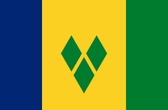
Call 0330 880 3600 Calls may be monitored or recorded. Opening Times.
- TRAVEL INSURANCE
- COVID-19 COVER
- More Options
- Help & Advice
- Existing Customers

Call 0330 880 3600 Calls may be monitored or recorded. Opening Times.

Need help?
UK Customer Services0330 880 3600*
Open Monday to Friday 9:00am to 6pm, Saturday 8:30am to 4pm and closed Sundays.
*Calls are recorded for training and quality purposes.

Official name: Saint Vincent and the Grenadines
Capital city: Kingstown
Languages spoken: English, Vincentian Creole
Population: Around 110,000
Currency: Eastern Caribbean dollar (XCD)
Time zone: GMT-4
Driving side: Left
Climate: Tropical, with a wet season from June to November
Saint Vincent and the Grenadines is a chain of lush islands scattered across the southern Caribbean, offering everything from volcanic peaks to white-sand beaches. Known for its sailing culture, unspoiled nature, and laid-back lifestyle, the country attracts honeymooners, divers, and yacht enthusiasts. Beyond the luxury resorts, visitors will find friendly communities, reggae rhythms, and a strong connection to the sea.
The country consists of the main island of Saint Vincent and around 30 smaller Grenadine islands, of which only a handful are inhabited. The terrain of Saint Vincent is volcanic and mountainous, with La Soufrière being its highest peak at 1,234 metres. The smaller Grenadines are known for coral reefs, turquoise lagoons, and pristine beaches.
The main airport is Argyle International Airport (SVD) on Saint Vincent, offering international and regional connections. Ferries link the Grenadine islands, with sailing being the most popular way to explore. Top highlights include Tobago Cays Marine Park, Mustique, Bequia, and hiking to La Soufrière volcano. The best time to visit is during the dry season from December to May.
UK, US, EU, and Commonwealth nationals do not usually need a visa for short visits (typically up to 30 days, extendable). Passports must be valid for at least six months after arrival. The British High Commission in Kingstown provides support for UK citizens.
The currency is the Eastern Caribbean dollar (XCD), though US dollars are widely accepted. ATMs are available in main towns, and credit cards can be used in hotels, restaurants, and shops. Smaller vendors may prefer cash. Service charges may be included in bills, but tipping for good service is appreciated.
Healthcare facilities are limited outside Kingstown, so comprehensive travel insurance is essential. The island has a few hospitals and clinics, but serious medical conditions may require evacuation. Routine vaccinations should be up to date, and visitors may consider hepatitis A, hepatitis B, and typhoid depending on their travel plans. Mosquito-borne illnesses such as dengue and Zika are present — use insect repellent and protective clothing. Tap water is chlorinated but bottled water is recommended for visitors.